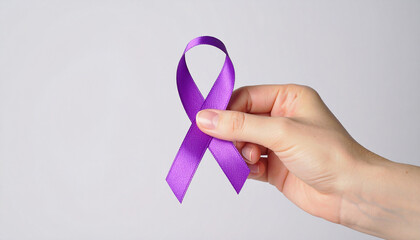
A wave of color and purpose will sweep through Saddle Hill Winery on Saturday, Sept. 28, as members of the Voorhees-Gibbsboro Lions Club, community supporters and survivors gather for a saree walkathon, an event that will blend cultural celebration with a strong call to action against domestic violence.
The walkathon is part of a nationwide effort tied to Domestic Violence Awareness Month in October, but for the Lions Club, it is deeply rooted in their mission of service.
“This walkathon was inspired by the stories of survivors who often felt isolated and silenced,” said club president Kim Gill. “We wanted to create an event that is both supportive and visible, one that says, ‘You are not alone, and the community stands with you.’”
The walkathon takes its name and theme from the saree, a traditional garment worn by women across South Asia and beyond. The choice, Gill explained, is symbolic.
“The saree is a symbol of heritage, grace and resilience,” she explained. “By choosing sarees, we highlight the strength and beauty of women across cultures, while also creating a powerful visual statement of unity. It shows that cultural traditions can be celebrated while addressing issues that are too often kept behind closed doors.”
Walkathon participants are encouraged to wear sarees or incorporate purple – the color associated with domestic violence awareness – into their attire. The visual impact, Gill hopes, will spark conversation and remind survivors that they are seen, valued and supported.
While statistics show that one in four women and one in nine men will experience severe intimate partner violence in their lifetimes, Gill stressed that the walkathon is about more than numbers.
“We hope people leave with the understanding that domestic violence is not a private issue, it’s a community issue,” she noted. “Our message is one of solidarity, awareness and empowerment: Everyone has a role in creating a safe and supportive environment for survivors.”
That role extends to men as well.
“Men play a crucial role, not just as allies, but as advocates,” Gill pointed out. “Their presence reinforces the message that domestic violence is not a‘women’s issue, but a human rights issue. When men speak out, listen and stand in solidarity, it helps break cycles of abuse and challenges harmful norms.”
One of the key aims of the saree walkathon is to break the cultural silence surrounding domestic violence, especially in minority communities where stigma and social pressure often prevent survivors from speaking out.
“Public events like this give permission to talk openly about domestic violence, reduce shame and demonstrate that the community values safety and dignity over silence,” Gill said.
She also emphasized that domestic violence takes many forms, not all of them immediately visible. Abuse may be emotional, financial, verbal or even digital, manifesting as controlling money, isolating a partner from friends and family, constant criticism, surveillance of phones or threats tied to immigration status.
“Recognizing these patterns is key to early intervention,” Gill emphasized. “Sometimes it’s the little things – like a hesitance to speak freely – that indicate something deeper is wrong.”
She urged the community to watch for signs such as unexplained injuries, sudden withdrawal from social activities, fearfulness or changes in work or school performance.
October’s Domestic Violence Awareness Month provides a national platform to highlight survivor stories, which Gill sees as vital to the movement.
“Awareness Month is not just about statistics, it’s about stories,” she observed. “By amplifying survivor voices, we honor their courage and show others that help is possible. It transforms silence into strength and ensures that survivors are at the center of advocacy.”
Gill also believes that broader community institutions must take active roles. Schools, she suggested, should teach healthy relationship models. Workplaces can offer flexible leave policies for survivors. Neighborhoods can build trust so survivors feel safe coming forward.
“It’s about creating an environment where survivors know they won’t face judgment if they reach out,” she said.
The walkathon’s marketing chair, Rup Chakravarty, is working alongside Gill to promote the event, ensuring it reaches across cultural and community lines. The event will also serve as a resource hub, directing survivors and supporters toward organizations that can provide assistance. Among them are:
- National Domestic Violence Hotline: 1-800-799-SAFE (7233)
- New Jersey Coalition to End Domestic Violence: 1-800-572-SAFE (7233), www.njcedv.org
- New Jersey Address Confidentiality Program: 1-877-218-9133
- State office of Victim-Witness Advocacy: www.njvw.org
For Gill, every walkathon participant, every step and every saree worn is a statement of hope and solidarity.
“We are doing our small part by organizing this walkathon,” she stated. “But together, as a community, we can do something much bigger. We can break the silence, honor survivors and stand up against domestic violence.”
